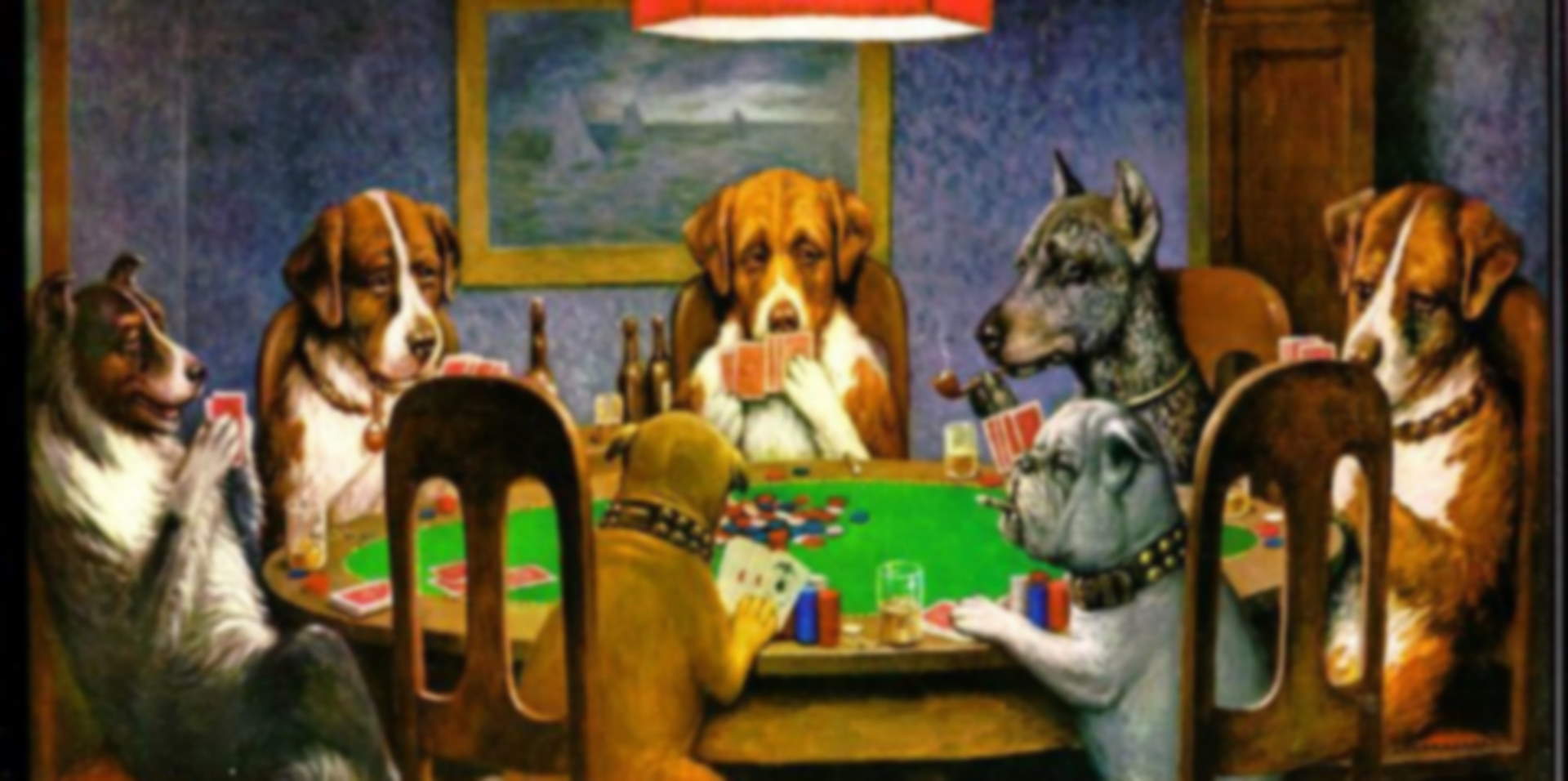/ 
There are exceptionally rare instances when both the poker tournament and the actual winner jointly possess such astonishing depth of character and convolution that words, sentences, paragraphs, and narratives cannot possibly depict the full magnitude of both man and feat. Event #3 at the 2006 World Series of Poker was just such a tournament.
After ten years of toil on the poker tournament trail, after a life span of revelry, after ultimately dedicating much of his energy to a charity and the pursuit of science and research, Rafe Furst, a 37-year-old Chief Technical Officer from Los Angeles, won his first WSOP gold bracelet. It is difficult if not impossible to describe Furst in just a few words: “Tiltboy.” Stanford University grad. High-tech whiz. Book co-author. Charitable philanthropist. Former Roshambo champion. And now – World Series of Poker champion.
This modern-day Renaissance man topped a record-field of 1,102 players in the $1,500 buy-in pot-limit hold’em competition. It was the largest pot-limit hold’em event ever in the 37-year-history of the World Series of Poker, eclipsing last year’s 1,071 record number. Furst’s triumph was not just unforgettable because he won, but more memorable for how he won. The California Tiltboy flat-out played the best poker of his life, surviving ten chip-lead changes at the final table. In fact, Furst defied poker’s grim reaper on at last two occasions, catching miracle, life saving cards on the river both times that made the final outcome not so much a marvel as the fulfillment of righteous destiny.
After two complete days of play, the pot-limit final table was set with the nine survivors. Sports television leader ESPN was on hand to film the spectacle for later broadcast – a show not to be missed. When the first hand was dealt out in front of the standing-room only crowd packed to the rafters inside the Rio Convention Center, including large cheering sections for several of the crowd favorites, seating positions and chips counts were as follows:
| Name | Chip Count | Seat # |
| Rocky Enciso | $247,000 | 1 |
| Eric Lynch | $455,000 | 2 |
| Rafe Furst | $222,000 | 3 |
| Rick Chase | $95,000 | 4 |
| George Bronstein | $15,700 | 5 |
| Can Hua | $122,000 | 6 |
| Burt Boutin | $140,000 | 7 |
| Alan Gilbert | $88,000 | 8 |
| John Juanda | $147,000 | 9 |
The first player eliminated was Alan Gilbert, a software engineer from southern California. Gilbert arrived second-lowest in chips. He failed to gain any significant momentum on the final day. On his hand of doom, Gilbert’s pocket tens were flattened by Can Kim Hua’s pocket queens. Ninth place paid $33,845.
John Juanda’s three previous WSOP gold bracelets would normally be a factor at any final table, both in terms of intimidation and self-confidence. But, Juanda’s bid for Number Four never materialized. Juanda’s stay was short and unpleasant, wrecked when his pocket queens were trounced by Hua’s A-K, after a king flopped. The pair of kings held up and Juanda collected a less-than satisfying $37,606 for eighth place.
At the start of play, Rick Chase arrived low on chips but managed to survive a few hours in front of the cameras. The TV producer from Malibu, CA was finally unplugged after running card-cold for an extended period and was ultimately cancelled. Chase ran away with $45,127 for seventh place.
Then, came “the Furst Miracle.” Devine intervention interceded when Furst was dealt A-A and found himself all-in against Can Kim Hua with 7-2. As bizarre a set up as the double-reverse bad beat story sounds, Hua’s 7-2 was actually a heavy favorite when all the chips were pushed to the center of the table. The four board cards showed Q-7-7-3. Hua held trip sevens and Furst (with the power pair) was down to just two outs in the deck for survival. Kaboom! An ace rained down from the heavens and salvaged Furst’s dream of victory.
Hua must have felt like a skydiver without a parachute for the total freefall he took at this final table. In three breakneck hands, he went from chip-leader to the pavement. Can Kim Hua, a poker pro and veteran of many final table battles, was eliminated by Burt Boutin and had to settle for sixth place, which paid $52,648.
Once again, the bully morphed into the bullied. Boutin must have thought there was a mini-trampoline hiding under his stack, for as quickly as he won a big pot, he lost it all back – and more. Boutin, a stockbroker from Las Vegas was dealt poker’s equivalent of a margin call when his two pair (sevens and fours) was bankrupted by Rocky Enciso’s higher two-pair (kings and sevens). Boutin’s dividend paid out sixty grand.
Other than the eventual winner, George Bronstein may very well have enjoyed the most satisfaction at the final table. He arrived with a stack so low (15K compared to the chip leader’s 455K) that he must have felt like a K-Mart shopper trapped inside a Neiman-Marcus. But in the end, Bronstein picked up far most cash than he had bargained for. Had his pocket tens held up against A-K on his final hand (it didn’t – an ace fell instead), Bronstein most certainly would have finished higher and perhaps been in contention for a bracelet. Instead, fourth place paid $75,212.
Then, came “Furst’s Second Miracle.” On the key hand, Furst re-raised all in with A-8 suited and was hanging on for dear life, staring straight ahead at Eric Lynch’s A-K like it was free one-way bus ticket to Pahrump. Amazingly, Furst and Lynch ended up splitting the potentially decisive pot when the final board showed J-10-6-J-6 (both players made two pair with an ace kicker).
Things went from bad to worse, to even worse, to the worst possible fate for Eric Lynch. The chip leader during much of the final table had several opportunities to lock up a victory, but was never quite able to catch the one vital hand that might have brought the ultimate poker triumph. In what was possibly the most exciting moment in a night of exhilarating hands, Rocky Enciso started things off when he made a pre-flop raise holding K-Q. Eric Lynch moved over the top and all-in with A-7. Rafe Furst peaked at A-K and called instantly. Enciso was pot-committed and also called. The flop came K-J-3 and the Furst’s cheering section went wild. With a dominant hand and holding the most in chips, Furst stood on the doorstep of victory. Then, the door slammed shut. When a queen was peeled from the deck giving Enciso two-pair, the rush of emotions within the crowd upturned. Enciso’s family and friends roared. Meanwhile, Furst, Lynch, and a packed gallery of spectators stood in hushed disbelief. A blank on the river sealed Lynch’s fate. Eric Lynch, a well-known online tournament player who plays under the name “Rizen” could rise no higher than third. His prize money amounted to $104,544.
If there was one bright spot to losing the biggest hand of the tournament, it was that Furst still had more chips, which allowed him to use his big stack as a sledgehammer. In the end, Enciso was nailed on the final hand of the tournament, holding J-4. He lost to Furst’s 8-4 when the final board showed 10-8-4-10-2. Furst had two higher-pair (tens and eights versus tens and fours) and was declared the winner.
Rocky Enciso finished as the runner up. The full-time poker player from Glendale, CA – who also finished 12th in the H.O.R.S.E. event at the 2004 WSOP – enjoyed his biggest poker payday ever – $180,508.
Rafe Furst won his first-ever WSOP gold bracelet and collected $345,984 in prize money for winning the biggest pot-limit hold’em tournament in history. But even in the midst of television’s bright lights, creating instant fame and fortune—Furst remained his unassuming self. Perhaps it was his cerebral temperament. Perhaps it was his peaceful nature. Perhaps it was a tranquil inner sense of satisfaction attained and enjoyed only by the most confident and secure of men who do not need nor value material goods nor notoriety to feel good about themselves.
“I feel like I played very well. I never had my money in with the worst of it in this tournament, at least up until the final table,” Furst said. “There were some unbelievable hands played tonight….four or five times we saw river cards spiked. It just became bizarre after awhile. It was almost like you expected it (to happen).”
Furst is the co-founder of “Put a Bad beat on Cancer,” a collection of poker players who have all pledged to donate one-percent of their WSOP winnings to the charitable foundation which is seeking a cure for the dreaded disease. Four years ago, Furst (along with poker celebrity Phil Gordon) created the project, which first appeared at the 2003 WSOP after a full-year coast-to-coast road trip. During that time, Furst and Gordon dedicated all of their time and energy to the good cause, yet refused any salary or compensation. The foundation is active at the 2006 WSOP and is already attracting many pledges. But as Rafe Furst would be the first to say in hoping that more players will sign up – there are never enough good deeds nor good people to do them.
Dieser Artikel erschien auf PokerOlymp am 19.04.2007.

